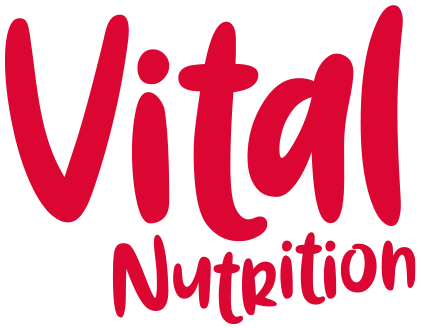Teenage Vegetarian Diets
When children start to question where their food comes from, it is a good thing.
The more connected we are to the food we eat, how it grows and is produced, the better, but sometimes questioning the source throws a red light on the moral or environmental impact our diets have on the planet.
For some children and teenagers, this means they being to doubt the morals of meat-eating and look towards a more plant-based, vegetarian or vegan diet. The popularity of plant based diets has increased over recent years, but being a teenager has always been about self discovery, so a change in diet can come as part of the package.
As a parent, it can be a tricky balancing act to make sure your teens are getting a healthy balance of all the nutrients their growing bodies need, especially around puberty when then human body is changing shape, form and function and nutritional needs are pretty demanding.
If you are faced with the prospect of changing family mealtimes and catering for different diets under one roof, it can be confusing to work out how to manage this.
A vegetarian diet
There are different types of vegetarian diet, but mostly they fall into the category of lacto-ovo-vegetarian (vegetarian), or vegan. A vegetarian diet includes dairy products and eggs, while a vegan diet excludes all animal produce.
Generally, most growing teens will get enough nutrition from a vegetarian diet when they include dairy products and eggs, but it can be trickier to get the balance right if these foods are excluded in a vegan diet.
Key nutrients
There are certain nutrients that are super important for growing teens. These include B12, zinc, iron, vitamin D, protein, essential fats and calcium, which will be found in adequate amounts in a vegetarian diet, but often need to be supplemented in a vegan diet. Look out for a good quality vegetarian multivitamin and mineral complex aimed at your child’s age group as an added health insurance to cover all bases.
vitamin B12 - found in dairy products, eggs, and vitamin-fortified foods
calcium - found in dairy products, dark green leafy vegetables tahini (sesame seeds are a particularly good source, so using tahini as a spread, or in sauces is a good idea)
protein - from dairy products, eggs, tofu, nuts, beans, lentils, quinoa, quoin (but just not the overly processed varieties)
iron - found in beans, green leafy vegetables, and fortified foods
zinc - from nuts and seeds, legumes
omega 3 fats - from chia, flax or walnuts
What to eat
There are lots of new foods on the market aimed at the growing interest in plant based diets. Unfortunately a lot of these foods are highly processed, and packed with sugar, salt and additives, so take care to read the labels and know what you are buying. They are fine as an occasional food, but not as a base for a veg diet.
A vegetarian diet can provide a wide variety of healthy and wholesome foods, and give the whole family new ideas that they might enjoy. A little bit of planning can make the transition easy and enjoyable, rather than adding stress to family mealtimes.
Rethink your dinners - family meals like spag bol, chilli and curry work really well as a vegetarian version so that you are all eating the same thing (less washing up!) Use puy lentils in place of mince for bolognese, kidney beans or mixed beans in chilli, and chickpeas or red lentils in curries.
Side dishes like salads, vegetables, rice, pasta, etc. can stay the same and just switch the protein up. If the rest of the family are eating a ‘meat and two veg’ type dinner, then just replace the meat with a good quality vegetarian alternative.
It is a good idea to cook in bulk, so have an extra portion of a veg dinner in the freezer than can be easily reheated if you need something quick and handy.
This blog post first appeared as my column in The Irish News on Saturday 1 May 2021.

